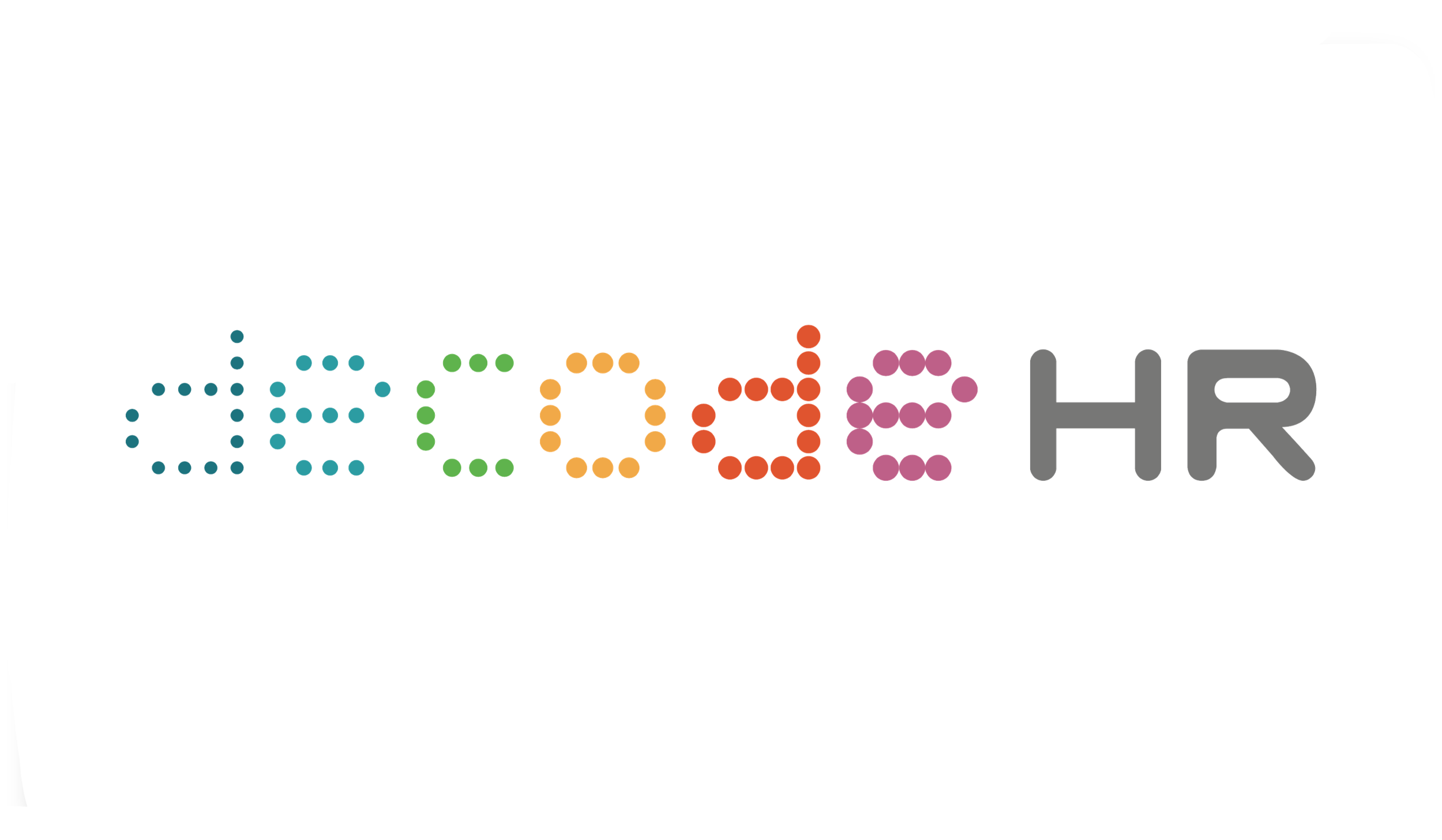When Two HR Thought Leaders Connect Over Recruitment
Reading time: 5 mins
Partner Spotlight: The Talent Games
DecodeHR Managing Director Evelyn Chow and The Talent Games CEO Paul Keijzer hit it off in an hour-long dialogue about the challenges of how to attract and hire the right person for a role today.
Amid the Great Resignation where competition for talent has become more intense than ever, the HR industry is buzzing with talk about recruitment and the question of how to win back workers.
Indeed, it is very much on the minds of DecodeHR Managing Director Evelyn Chow and The Talent Games CEO Paul Keijzer. While Evelyn is occupied with nurturing DecodeHR’s recruitment and talent development services which have grown in the last two years, Paul is pushing the boundaries of how gamified talent assessments can upgrade candidate experience and help companies attract top talent.
In an hour-long virtual dialogue, the seasoned HR professionals exchanged views on the evolution of recruitment, how technology – while powerful – still cannot replace human judgment in some instances, nor the instinct required of entrepreneurship. Here are the highlights.
Origin of The Talent Games and an Innovative Mindset
Evelyn: What drew you to creating The Talent Games?
Paul: Being in the HR industry for over 30 years allowed me to create an experience platform to do things differently.
Back in 2017, me and my The Talent Games co-founder, Shail Niazi, had an idea where people play a game and get to know what a company is all about. At the same time, the company gets to assess specific competencies. We came up with that idea within a week, had a proposal out within 10 days, it was accepted by our client within two weeks, and within two months we had our first game. That's how it all started!
Evelyn: This mindset that you have - to break out of the box - was it encouraged by your life experiences?
Paul: I've been living outside of my home country of the Netherlands for the last 25 years. When I was working for Unilever, I lived in Shanghai, Vietnam, and Pakistan. One of my personal highlights was driving with three friends from Holland to South Africa, which took six months. I've been pushing my own boundaries throughout my life; perhaps because from a very early age, my parents pushed me out of the door and let me go on holidays, and experience life, myself.
The Talent Games creates interactive and challenging gamified assessments to help organisations attract, engage, and assess top talent remotely
A Better Recruitment Experience
Evelyn: What you’re doing at The Talent Games is cutting-edge! How do you view the evolution of the talent acquisition scene on a global level?
Paul: We are still applying 19th century theories with 20th century tools in the 21st century! While we have moved to a new interface in terms of desktop or mobile platforms, nothing much has changed in terms of process, innovation, efficiency or the candidate experience.
At The Talent Games, we are trying to create a much more exciting candidate experience with technology. This will drive the future of talent acquisition, to enable engagement with potential candidates and create an experience that excites people so that they want to join you.
With the whole Great Resignation, the talent squeeze is now bigger than it has been for the last 20 years. If organisations are not on top of the game in terms of the recruitment experience and selection tools used, they are really going to be dinosaurs.
The Talent Games’ AI-powered gamified assessments are designed to accurately evaluate each candidate’s cognitive ability, aptitude, and behavior
Enabling Fun, Bias-free High-volume Recruitment
Paul: We currently have a client that needs to recruit 20,000 volunteers for a major event and there will be about 300,000 people who will be playing our assessment games.
No recruitment officer goes through 300,000 resumes, that’s impossible. What we create is a bias-free platform, where everybody starts from the same starting point, and they play a game which is an actual representation of the situations that they're going to come across. These are specific scenarios which find out how they would respond. We also test for cognitive abilities. Our platform provides 300,000 people with an equal opportunity.
Both of us know that GPA is not the best predictor of career success.
Evelyn: It’s true that many companies filter out candidates who do not meet the minimum requirements based on the bar they set. In these companies, if you don't have academic results or scores that meet the minimum, then essentially, you don't get the chance to ‘play’. Also, some people blossom later, or reach their potential at a different rate. Oftentimes, it is about encountering the right opportunities at the right time as well. Seeing people for more than just their GPA is important.
Paul: Yes. It’s creating a platform that creates equal opportunities, and to let as many people as possible participate in the assessments, in the game, and on that basis, make a decision. Not on the basis of whether they came from this university, had that GPA, or had that family relationship. With The Talent Games platform, what we are starting to see is people that otherwise would never have an opportunity, suddenly come floating upwards and have an opportunity for face-to-face conversation.
We also want to completely transform the candidate experience and make it fun to apply. I have asked people, is it fun to apply to a company? Out of 100 people, 99 will say “Absolutely not!” I want to make it fun and engaging for people to apply and for them to get to know what it is to work in organisations through real-life scenarios.
Rise of Skill-preneurs and IP Concerns
Paul: Companies are using talents from partners, agencies, freelance providers, open source. We have to change our talent practices to reflect that there's a whole talent conduit beyond the people on your payroll. There are also those whom I call “skill-preneurs” - people who are selling their skills as an entrepreneur not necessarily to the highest bidder, but for more flexibility, engagements and other factors.
Evelyn: It’s exciting because you're looking at the entire ecosystem instead of just employees on the payroll. But that would probably challenge companies that value intellectual property (IP). What are your thoughts on that?
Paul: I'm a little bit radical in this area! I sincerely believe that if a business has to rely on IP and laws to protect what they’re doing, they are running behind. At The Talent Games, we have never applied for trademarks or patents because we didn't want to spend the energy, time and money to protect what we had. We would rather make our products better and stay ahead of the competition.
A screenshot of The Talent Games’ report dashboard
Giving Back to Every Candidate
Evelyn: What has been the most satisfying part of setting up The Talent Games?
Paul: It has all to do with people. Bringing people together, making them believe, and developing something that nobody else has done before to create an impact. The pressure comes from constantly keeping the team together, moving them in a certain direction, and having to make monthly payroll. That has not been easy. At times, I had to dip into my own savings to make sure that I paid the people that worked for me. Over the last 15 years that I have been an entrepreneur, I'm proud that I have always been able to look after the team.
Evelyn: As an entrepreneur myself, I know what you mean. I think the beauty of The Talent Games product is that you're doing something really quite different from other tools in the market, which allows candidates to take off from the same starting point. It’s good to give people the opportunity to have not just a second chance, but a third or fourth, as long as their hearts are in the right place and they have the right attitude.
Paul: That brings me to how we wanted to give something back to the candidates. Each candidate that plays our game gets a scorecard of how they did, how they stack up against other people and suggestions on what they can do next. For this, we have seen a tremendous amount of positive feedback from candidates on our social media. Because with 10 people being hired out of a pool of perhaps 4,000, 99.75 per cent still get something back in return. I think that is valuable.
An example of a candidate’s report
All-Important Human Factor in Recruitment
Evelyn: On the subject of recruitment tools, in the past, a candidate I shortlisted to take an assessment wasn’t rated highly. But I felt positively about her. I went ahead with the hire and she turned out to be one of the best!
Paul: The same happened to me! When I applied to join Unilever, after going through a management trainee selection process, I was not selected. But a line manager who had interviewed me decided to hire me. Five years into Unilever, I became a senior manager in Unilever, China and I had overshot some of my peers. There are always funny stories around selection and indeed, the human factor is very important.
Evelyn: I value all the tools that we can get, and some tools can be highly rigorous and help us to make better decisions. But because of my experiences, I've also come to really value human judgment. That's probably something that we should continue to hold on to, and not just throw it out the window.
Partner Spotlight is a DecodeHR initiative which offers valuable insights from the movers and shakers in HR tech.
Meet The Talent Games and our other tech partners here. Feel free to get in touch here if you’d like some advice on digitalisation.
Check out Paul’s insights in this video:
Check out our articles on cutting-edge recruitment practices!
How Artificial Intelligence Is Boosting the Talent Acquisition Process
Must-Know Guide to Virtual Group Interviews
How AI is Helping to Increase Diversity and Inclusion Through Objective Recruitment










